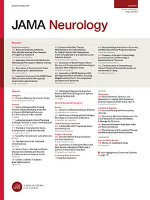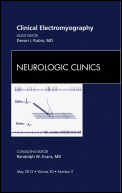
NEUROEPIDEMIOLOGY
Scope & Guideline
Leading the Charge in Neurological Epidemiological Research.
Introduction
Aims and Scopes
- Epidemiological Research on Neurological Disorders:
The journal primarily emphasizes the epidemiology of various neurological conditions, such as stroke, dementia, multiple sclerosis, and traumatic brain injuries, exploring factors influencing their prevalence, incidence, and outcomes. - Health Economics and Cost-Effectiveness Analysis:
Research often includes economic evaluations related to neurological diseases, assessing the cost-effectiveness of interventions and the economic burden of these conditions on healthcare systems. - Longitudinal and Cohort Studies:
A significant focus is placed on longitudinal studies that track the progression of neurological diseases over time, providing insights into risk factors and long-term health outcomes. - Systematic Reviews and Meta-Analyses:
The journal frequently publishes systematic reviews and meta-analyses that synthesize existing literature, offering comprehensive overviews of specific topics within neuroepidemiology. - Global and Regional Health Perspectives:
Neuroepidemiology explores neurological health from a global perspective, investigating disparities in disease burden and healthcare access across different regions and populations. - Interdisciplinary Approaches:
The journal encourages interdisciplinary research that combines neurology, epidemiology, public health, and social sciences to address complex health issues related to neurological disorders.
Trending and Emerging
- Impact of COVID-19 on Neurological Health:
There is a significant increase in studies exploring the neurological implications of COVID-19, including its association with conditions such as long COVID, stroke, and other neurological manifestations. - Gender and Socioeconomic Disparities in Neurology:
Emerging research is increasingly focusing on gender and socioeconomic disparities in neurological diseases, emphasizing how these factors influence disease prevalence and management. - Integration of Machine Learning and Big Data in Epidemiology:
The use of machine learning and big data analytics is on the rise, allowing for more sophisticated analyses of large datasets to identify patterns in neurological disease risk and outcomes. - Chronic Disease Management and Economic Evaluations:
A growing emphasis on chronic disease management approaches and economic evaluations reflects a trend towards understanding the long-term implications of neurological disorders on healthcare systems. - Environmental and Lifestyle Factors in Neurological Disorders:
Research is increasingly examining the roles of environmental exposures and lifestyle factors (such as diet, exercise, and smoking) in the epidemiology of neurological diseases, highlighting the importance of preventive measures.
Declining or Waning
- Traditional Neurological Conditions without Novel Insights:
Research on well-established neurological conditions, such as classic stroke epidemiology, seems to be declining, particularly studies that do not introduce new methodologies or insights into existing knowledge. - Focus on Acute Neurological Events:
There appears to be a waning interest in acute neurological events that do not lead to long-term studies or chronic disease management, indicating a shift towards chronic disease epidemiology. - Single-Country Studies:
The prevalence of studies that focus exclusively on single-country data without comparative analysis or broader implications is decreasing, as there is a growing emphasis on global health perspectives. - Underrepresentation of Rare Neurological Disorders:
Research attention towards rare neurological disorders and their epidemiology seems to be diminishing, possibly overshadowed by more prevalent conditions that have broader public health impacts. - Demographic Specificity in Epidemiological Studies:
There is a noticeable reduction in research specifically targeting demographic subsets, indicating a move towards more generalized population studies rather than those focusing on specific groups.
Similar Journals

JAMA Neurology
Exploring Innovations in Neurological DisordersJAMA Neurology is a leading peer-reviewed journal published by the American Medical Association, focused on advancing the understanding and treatment of neurological disorders. With an impressive impact factor and ranked in the 99th percentile among clinical neurology journals, this publication is recognized as Q1 in its category for 2023, highlighting its significance in the field. Since its inception, the journal has provided a platform for high-quality research, clinical trials, and reviews that inform both clinicians and researchers. Operating from its headquarters in Chicago, Illinois, JAMA Neurology offers rich insights into the latest advancements in neurology, featuring articles that span a wide range of topics including neurodegenerative diseases, stroke, epilepsy, and neurocritical care. Researchers and professionals are encouraged to access the journal’s content freely, as it employs open access options to promote the dissemination of critical knowledge. As a critical resource in the field of neurology, JAMA Neurology is essential for anyone involved in this dynamic and rapidly evolving specialty.

Current Neurology and Neuroscience Reports
Fostering Interdisciplinary Dialogue in NeurologyCurrent Neurology and Neuroscience Reports, published by Springer, is a leading peer-reviewed journal dedicated to advancing the field of neurology and neuroscience. With a notable impact factor and a reputable standing in the academic community, as evidenced by its Q1 rankings in both Neurology (Clinical) and Neuroscience (Miscellaneous) for 2023, this journal is ranked #49 out of 400 in clinical neurology and #21 out of 113 in general neuroscience, placing it in the 87th and 81st percentiles respectively.
Since its inception in 2001, it has provided a platform for groundbreaking research, comprehensive reviews, and critical insights into contemporary issues affecting the nervous system. Aimed at researchers, clinicians, and students alike, Current Neurology and Neuroscience Reports fosters interdisciplinary dialogue and knowledge exchange, addressing a broad spectrum of topics from clinical neurology to theoretical neuroscience. By publishing high-quality research, the journal not only contributes to the scientific community but also aims to enhance patient care and inform clinical practices. As a vital resource in neurological research, it invites contributions from a diverse range of studies to expand understanding in this ever-evolving field.

NEUROLOGIA
Connecting Global Minds in the Pursuit of Neurological ExcellenceNEUROLOGIA, an esteemed journal published by ELSEVIER ESPANA SLU, stands at the forefront of the field of neurology, with a dedicated focus on innovative research and clinical practice since its inception in 1973. As an Open Access journal since 2017, it champions the dissemination of knowledge, allowing researchers, professionals, and students alike to access cutting-edge findings in neurology without barriers. With an impressive Scopus rank of #115 in the clinical neurology category, placing it in the 71st percentile, NEUROLOGIA is categorized as Q3 in both general medicine and clinical neurology, reflecting its impact and relevance in a rapidly evolving field. Based in Barcelona, Spain, the journal's commitment to advancing understanding of neurological conditions is underscored by its rigorous peer-review process and engagement with a global audience. As it continues to publish vital research that shapes clinical practices and informs policy, NEUROLOGIA remains an integral resource for those striving to improve outcomes in neurology.

JOURNAL OF CHILD NEUROLOGY
Driving Discoveries in Pediatric Neurology and BeyondThe JOURNAL OF CHILD NEUROLOGY is a distinguished publication in the critical fields of neurology and pediatrics, published by SAGE PUBLICATIONS INC. With its ISSN 0883-0738 and E-ISSN 1708-8283, this journal has been a pivotal resource since its inception in 1986, serving the needs of researchers, clinicians, and students dedicated to advancing the understanding and treatment of neurological disorders in children. As evidenced by its impressive Q2 rankings in both Neurology (clinical) and Pediatrics, Perinatology, and Child Health, the journal has established a reputable position within the academic community, ranking in the 75th percentile for pediatrics and the 53rd percentile for clinical neurology. This periodical not only contributes to the body of knowledge in child neurology but also promotes interdisciplinary collaboration, engaging a global audience through innovative research articles and case studies. Although the journal is not open access, it remains committed to disseminating high-quality research aimed at improving pediatric health outcomes, making it an essential read for professionals and researchers dedicated to this crucial area of medicine.

Archives of Neuroscience
Advancing neuroscience through innovative research.Archives of Neuroscience is a multidisciplinary journal dedicated to advancing the field of neuroscience through the publication of original research articles, review papers, and case studies. Published by BRIEFLAND, this journal aims to bridge the gap between neuroscience research and clinical applications, fostering a deeper understanding of brain function, neurological disorders, and potential therapeutic approaches. With an ISSN of 2322-3944 and an E-ISSN of 2322-5769, Archives of Neuroscience serves as an essential platform for researchers, professionals, and students alike, encouraging open access to knowledge and insights that drive innovation in the field. Although coverage was discontinued in Scopus from 2016 to 2017, the journal continues to uphold rigorous standards of academic excellence, making it a valuable resource for the neuroscience community seeking to explore and disseminate new findings. The journal is committed to providing timely access to research tools and findings that are crucial for informed decision-making in both academic and clinical settings.

ACTA NEUROLOGICA SCANDINAVICA
Exploring the Frontiers of NeuroscienceACTA NEUROLOGICA SCANDINAVICA is a prestigious journal published by Wiley that has significantly contributed to the field of neurology and neuroscience since its inception in 1961. With a broad scope encompassing clinical and experimental research, this journal is esteemed for its rigorous peer-review process and high-quality publications. Located in the United Kingdom, it is recognized in the 2023 category quartiles as Q1 in Medicine (miscellaneous) and Q2 in both Neurology and Clinical Neurology, indicating its strong influence and relevance within the medical community. With an H-index demonstrating consistent citation impact, ACTA NEUROLOGICA SCANDINAVICA holds a Scopus rank of #86 out of 400 in Clinical Neurology, reflecting its contribution to advancing current knowledge and practice. Researchers, professionals, and students alike will find in this journal a valuable resource for the latest findings, discussions, and developments in understanding neurological disorders and treatments, furthering educational and clinical endeavors alike.

Neurology Asia
Uniting the region's brightest minds in neurology and neuroscience.Neurology Asia is a prestigious peer-reviewed journal dedicated to advancing the field of neurology in the Asia-Pacific region. Published by the ASEAN NEUROLOGICAL ASSOCIATION, this journal serves as a vital platform for sharing innovative research and clinical practices among neurologists and neuroscientists. With an ISSN of 1823-6138, it encompasses a broad range of topics within the realm of neurology and clinical neurology, allowing for an expansive dialogue on neurological disorders, treatments, and advancements in medical science. Although currently positioned in the Q4 quartile of both neurology and clinical neurology categories, it is committed to enhancing its reputation and impact within the academic community. While the journal is not an open-access publication, it strives to provide authors a respectable outlet for disseminating critical research findings. The journal’s address, located at the UNIV MALAYA MEDICAL CENTRE in Kuala Lumpur, Malaysia, reflects its commitment to fostering regional advancements in neurological research. By engaging with Neurology Asia, researchers, professionals, and students will contribute to shaping the future of neurology across Asia.

EUROPEAN NEUROLOGY
Connecting Researchers and Clinicians in NeurologyEuropean Neurology, published by KARGER, is a distinguished journal in the field of neurology, catering to both clinical and neuroscience specialties. Since its inception in 1897 and continuing through 2024, the journal has been a vital platform for disseminating significant research findings and insights in neurology. With an ISSN of 0014-3022 and E-ISSN of 1421-9913, it ranks in the Q3 quartile in both clinical neurology and general neurology categories, reflecting its commitment to scholarly excellence while holding the 175th rank in clinical medicine and the 93rd in neuroscience, according to Scopus metrics. European Neurology facilitates a deeper understanding of neurological disorders and treatments, appealing to a diverse readership that includes researchers, clinicians, and students alike. Despite not currently offering open access, the journal’s rigorous peer-review process ensures that only high-quality research reaches its audience, making it an essential resource for those looking to stay informed in the rapidly evolving field of neurology.

Egyptian Journal of Neurology Psychiatry and Neurosurgery
Illuminating Pathways in Neurology, Psychiatry, and NeurosurgeryEgyptian Journal of Neurology Psychiatry and Neurosurgery, published by Springer, is a premier open-access journal that has been dedicated to advancing the fields of neurology, psychiatry, and neurosurgery since its inception in 2009. With an E-ISSN of 1687-8329, this journal aims to provide a dynamic platform for researchers and clinicians to disseminate their findings, fostering a rich dialogue on the latest developments and innovations within these critical disciplines. With an impactful open-access model adopted since 2018, the journal attracts a global audience, facilitating the exchange of knowledge and ideas across various medical and scientific landscapes. In the 2023 rankings, it holds impressive positions within the Q3 category for Neurology (clinical), Psychiatry and Mental Health, and Surgery, as well as Q4 in Miscellaneous Neuroscience, highlighting its value within the field. As a valuable resource for both budding scholars and seasoned professionals, the Egyptian Journal of Neurology Psychiatry and Neurosurgery offers insights that drive progress in the treatment and understanding of neurological and psychiatric conditions.

NEUROLOGIC CLINICS
Advancing the frontiers of clinical neurology.NEUROLOGIC CLINICS, published by W B SAUNDERS CO-ELSEVIER INC, stands as a leading journal in the field of clinical neurology, boasting an impressive impact factor that reflects its significant contributions to neurological research and clinical practice. With an ISSN of 0733-8619 and E-ISSN of 1557-9875, this journal provides a critical platform for the dissemination of innovative research, case studies, and reviews focusing on various aspects of neurology, from diagnosis to treatment interventions. As part of its commitment to advancing the understanding of neurological disorders, NEUROLOGIC CLINICS is categorized in the Q2 quartile for Neurology (clinical) in 2023, indicating its robust standing within the academic community. It is recognized for its rigorous peer-review process and is indexed in Scopus, ranking #147 out of 400 in its field with a notable 63rd percentile. The journal, which dates back to 1983 and continues to publish vital findings up to 2024, is an invaluable resource for researchers, healthcare professionals, and students dedicated to enhancing their knowledge and clinical skills in neurology. Subscribe now to stay abreast of current advancements and expand your expertise in this dynamic field.